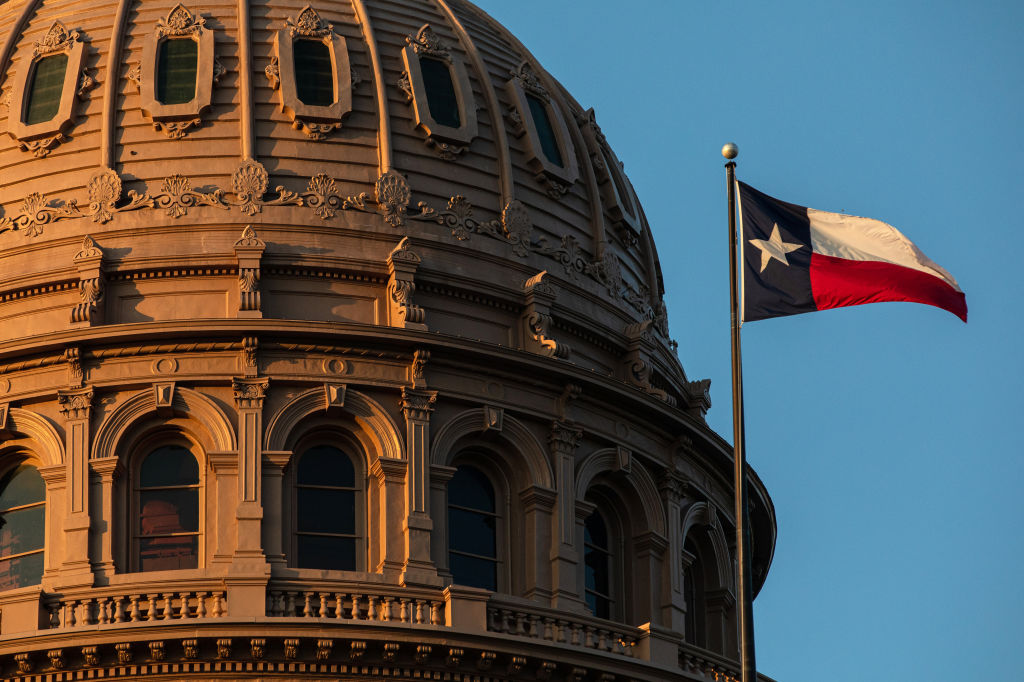First Amendment organization challenges restrictions on TikTok at Texas universities
Through a new lawsuit, a free speech group and research coalition that studies the effect of technology on society opposes the banning of TikTok affecting government apparatus in the State of Texas.
In the lawsuit, brought by Columbia University's Knight First Amendment Institute on behalf of the Coalition for Independent Technology Research, allied plaintiffs argue that restrictions on TikTok in Texas violate the First Amendment. The lawsuit focuses on how the ban affects faculty members at public universities.
“Banning public university professors from studying and teaching with TikTok is not a sensible or constitutional response to concerns about data collection and misinformation,” said Jameel Jaffer, executive director of Knight First. Amendment Institute. “Texas must pursue its goals with tools that do not impose such a heavy burden on First Amendment rights. Privacy legislation would be a good start."
Late last year, Texas Governor Greg Abbott ordered Texas agencies to remove the app from government devices, citing security concerns over Chinese ownership of TikTok. Abbott described concerns over TikTok as "growing threats", setting a mid-February deadline for government offices to implement the changes. Last month, the governor signed legislation to strengthen the ban, which initially took the form of an executive order.
This ban also applied to public universities in Texas, which decided to block TikTok from campus Wi-Fi networks and school-owned devices. Texas A&M and the University of Texas were among the colleges that complied with the ban, limiting access to the hit social video app on their campuses.
Public universities in Alabama, Arkansas, Florida, Georgia, Idaho, Iowa, Oklahoma, and South Dakota have also taken their own steps to restrict TikTok in light of other decrees. If successful, the Texas lawsuit could set a precedent for how similar bans will hold up in those states.
“Like it or not, TikTok is a hugely popular communications platform, and its policies and practices influence culture and politics around the world,” said Dave Karpf, Board Member of TikTok. administration of the Coalition for Independent Technology Research.
“It is important that academics and researchers can study the platform and bring to light the risks associated with it. Ironically, the misguided Texas ban prevents our members from studying the very risks that Texas says want to treat."
COALITION FOR INDEPENDENT T… by TechCrunch

Through a new lawsuit, a free speech group and research coalition that studies the effect of technology on society opposes the banning of TikTok affecting government apparatus in the State of Texas.
In the lawsuit, brought by Columbia University's Knight First Amendment Institute on behalf of the Coalition for Independent Technology Research, allied plaintiffs argue that restrictions on TikTok in Texas violate the First Amendment. The lawsuit focuses on how the ban affects faculty members at public universities.
“Banning public university professors from studying and teaching with TikTok is not a sensible or constitutional response to concerns about data collection and misinformation,” said Jameel Jaffer, executive director of Knight First. Amendment Institute. “Texas must pursue its goals with tools that do not impose such a heavy burden on First Amendment rights. Privacy legislation would be a good start."
Late last year, Texas Governor Greg Abbott ordered Texas agencies to remove the app from government devices, citing security concerns over Chinese ownership of TikTok. Abbott described concerns over TikTok as "growing threats", setting a mid-February deadline for government offices to implement the changes. Last month, the governor signed legislation to strengthen the ban, which initially took the form of an executive order.
This ban also applied to public universities in Texas, which decided to block TikTok from campus Wi-Fi networks and school-owned devices. Texas A&M and the University of Texas were among the colleges that complied with the ban, limiting access to the hit social video app on their campuses.
Public universities in Alabama, Arkansas, Florida, Georgia, Idaho, Iowa, Oklahoma, and South Dakota have also taken their own steps to restrict TikTok in light of other decrees. If successful, the Texas lawsuit could set a precedent for how similar bans will hold up in those states.
“Like it or not, TikTok is a hugely popular communications platform, and its policies and practices influence culture and politics around the world,” said Dave Karpf, Board Member of TikTok. administration of the Coalition for Independent Technology Research.
“It is important that academics and researchers can study the platform and bring to light the risks associated with it. Ironically, the misguided Texas ban prevents our members from studying the very risks that Texas says want to treat."
COALITION FOR INDEPENDENT T… by TechCrunch
What's Your Reaction?






















